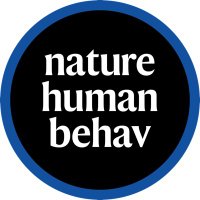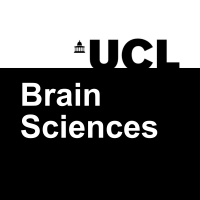
affective.brain
@affectivebrain
We are the Affective Brain Lab – Tali Sharot’s lab at UCL. Updates on our work on the brain, emotion, belief, learning and other interests of lab members
ID: 465023535
http://www.affectivebrain.com 15-01-2012 21:44:10
234 Tweet
4,4K Followers
155 Following

So so so proud of Chris Kelly whose PhD thesis includes incredible work (nature.com/articles/s4146… & osf.io/preprints/psya…) & some of the greatest work is yet to come - stay tuned! And now he is off to Stanford HAI . Congratulations!

Column: Your life is better than you think 📝 Tali Sharot and Cass Sunstein time.com/6722038/life-d…

In New York Times Opinion “If people intentionally expose themselves to different cultures, different practices and different forms of government, the injustices around them may no longer seem natural and inevitable,” Tali Sharot and Cass Sunstein write. nyti.ms/48tCRMO



🚨 New paper alert! 🚨 “Considering information-sharing motives to reduce misinformation” out now in Current Opinion in Psychology with affective.brain. doi.org/10.1016/j.cops… (1/n)

Excited to share our new article w/affective.brain in Nature Human Behaviour. Key finding: consuming more negative content online is tied to poorer mental health—and vice versa. 💻🧠 Article link: doi.org/10.1038/s41562… 🧵 Read on for more insights from the study


.Moshe Glickman and affective.brain reveal a human-AI feedback loop, where AI amplifies subtle human biases, which are then further internalized by humans. This cycle increases human bias over time across domains. nature.com/articles/s4156…

📢 New publication with affective.brain in Nature Human Behaviour Key finding: Human-AI interactions create feedback loops, where AI amplifies human biases, which are then further internalized by humans across perceptual, emotional & social domains. nature.com/articles/s4156… 🧵1/6

#BTAtDavos2025 | Tali Sharot (affective.brain), Professor of Cognitive Neuroscience, UCL, sheds light on the growing challenges of misinformation & disinformation in today’s social media-driven world. Rahul Kanwal Andhra Pradesh Economic Development Board Invest Telangana Watch #BTTV Live: tinyurl.com/5ye44sjh

#BTAtDavos2025 | UCL Professor Tali Sharot delves into whether the current trends in trust towards democratic institutions are temporary and poised for change or if they signal a deeper, worsening shift. Rahul Kanwal Andhra Pradesh Economic Development Board Invest Telangana Watch: tinyurl.com/5ye44sjh


We're delighted to announce that Prof. Tali Sharot (UCL Psych & Lang Sci, affective.brain) has been awarded £3.5m as part of Wellcome Discovery Award scheme to investigate the 'joy of thinking’. buff.ly/V3oCDFR

